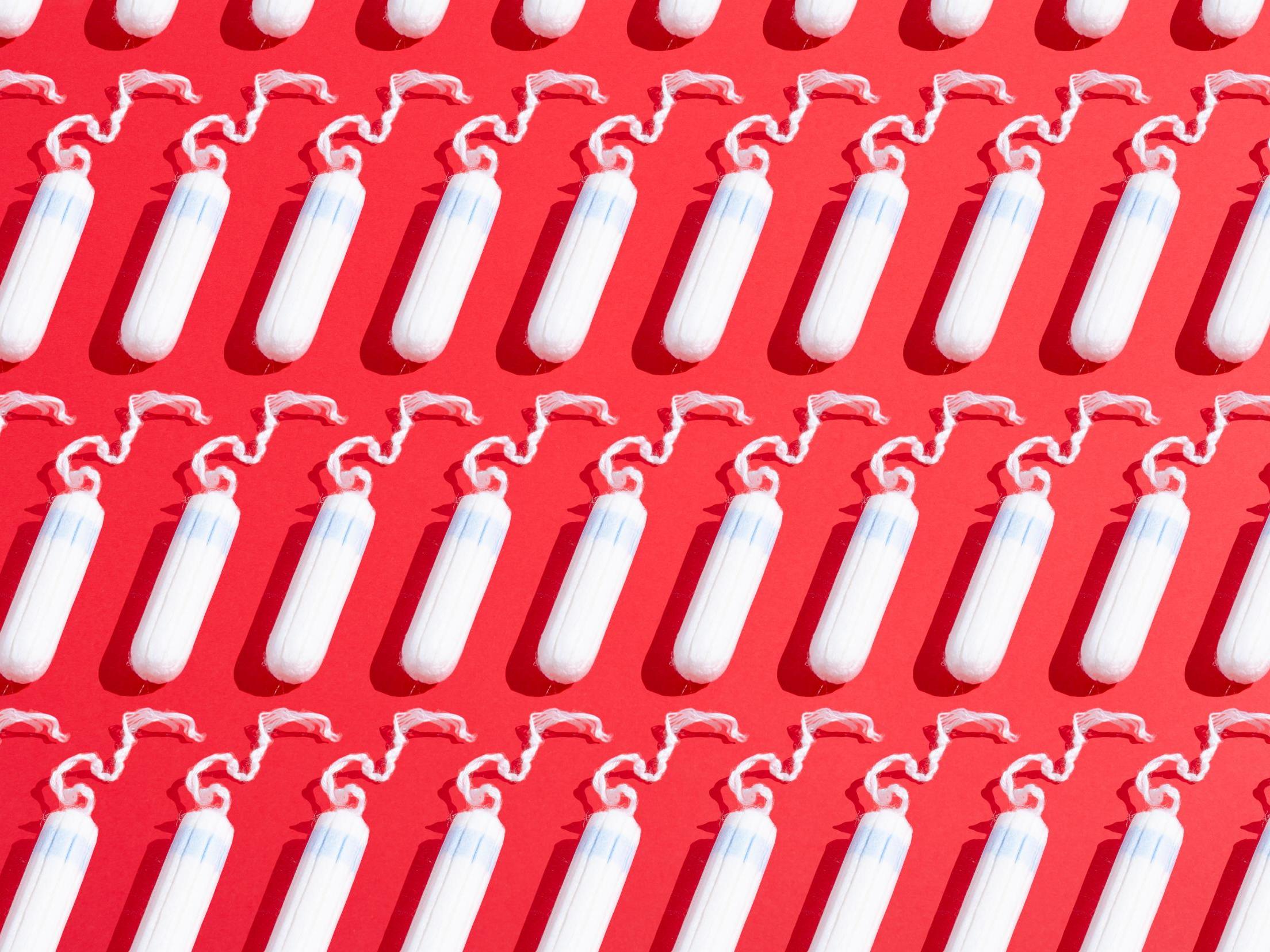Menstrual Hygiene Day: Period poverty is getting worse during lockdown, charity warns
Many people are being forced to ‘make do with whatever they can find to manage their period’, says Plan International UK

Your support helps us to tell the story
From reproductive rights to climate change to Big Tech, The Independent is on the ground when the story is developing. Whether it's investigating the financials of Elon Musk's pro-Trump PAC or producing our latest documentary, 'The A Word', which shines a light on the American women fighting for reproductive rights, we know how important it is to parse out the facts from the messaging.
At such a critical moment in US history, we need reporters on the ground. Your donation allows us to keep sending journalists to speak to both sides of the story.
The Independent is trusted by Americans across the entire political spectrum. And unlike many other quality news outlets, we choose not to lock Americans out of our reporting and analysis with paywalls. We believe quality journalism should be available to everyone, paid for by those who can afford it.
Your support makes all the difference.Shortages of sanitary products and price hikes during the coronavirus pandemic have led to a rise in period poverty, a children’s charity has warned.
As countries around the globe have been forced into lockdowns to help curb the spread of Covid-19, people across the globe are facing increasing struggles to access the sanitary products and facilities they need to manage their periods hygienically and with dignity.
According to a recent survey of 45 health professionals from 30 countries conducted by Plan International UK – a humanitarian organisation that advances children’s rights and equality for girls – 73 per cent said women were facing restricted access to products through shortages or disrupted supply chains.
Similarly, a separate survey of 1,010 girls aged between 14 and 21 by the charity found that three in 10 girls in the UK had struggled to afford or access period products during the lockdown.
Of those, 54 per cent said they had to use toilet paper as an alternative.
Elsewhere, WaterAid UK – a not-for-profit that aims to make clean water, toilets and good hygiene normal for everyone – conducted its own survey and found that more than half of menstruating women (55 per cent) in the UK had experienced increased challenges managing their periods under lockdown.
Rose Caldwell, chief executive of Plan International UK said issues arising from the pandemic were making it harder for girls and young women to manage their periods “safely and with dignity”.
“We already know that the coronavirus outbreak is having a devastating impact on family finances all over the world,” she said.
“But now we see that girls and women are also facing widespread shortages and price hikes on period products, with the result that many are being forced to make do with whatever they can find to manage their period.”
The WaterAid survey, which asked 755 British women aged 18 to 55 how the lockdown had affected their ability to manage menstruation, also showed that one in seven (15 per cent) had stockpiled sanitary materials at the start of the lockdown in preparation for supply issues. In London, the figure was 25 per cent.
Furthermore, 14 per cent said they were worried about going outside while having their periods during lockdown due to the closure of public toilets.
Ms Caldwell added that global period poverty and stigma was getting worse under lockdown.
“Period stigma is both a cause and consequence of gender inequality and can have a serious impact on girls’ life chances,” she said.
”It’s therefore critical that governments and health agencies prioritise menstrual hygiene management in their response to the coronavirus crisis and treat sanitary products as essential items during the pandemic and beyond.“
And the problem is not just affecting the UK. Last month, the Menstrual Health Alliance – co-chaired by WaterAid India – conducted a rapid response survey among 67 organisations that manufacture and/or distribute sanitary products across India and some African nations.
Three in five organisations (62 per cent) said there were increased challenges for women to access period products in the communities they work with, while one fifth (22 per cent) said people had been unable to access sanitary materials altogether.
Of 44 small and medium scale manufacturers of sanitary materials, only 25 per cent were operating fully, with two-thirds of organisations that distributed sanitary products (67 per cent) having to pause normal operation because the usual channels they rely on, such as schools and community outreach groups, have closed.
Thérèse Mahon, regional South Asia manager at WaterAid and coordinator for Global Menstrual Health and Hygiene Collective, said: “As governments across the world work round the clock to contain the Covid-19 pandemic, attentions have rightly been focussed on vital life-saving measures such as health care and the provision personal protective equipment.
“However, periods do not stop during pandemics. Disrupted water and sanitation services and supply chains for period products means many people are finding it much more difficult to access everything they need to manage their periods.”
She continued: ”This combined with a lack of privacy under lockdown and the closure of services at schools, health centres and communities that provide menstrual health products, information and help tackle menstrual stigma, risk halting or even reversing the enormous progress that has been made towards better menstrual health globally.”
Mahon added that now is the time for governments to prioritise the provision of clean water, good sanitation and hygiene as it is not only critical in the fight against coronavirus but also essential for people to manage their periods.
In March, chancellor Rishi Sunak announced the government’s plans to end the tampon tax and abolish VAT on women’s sanitary products from 2021.
Join our commenting forum
Join thought-provoking conversations, follow other Independent readers and see their replies
Comments